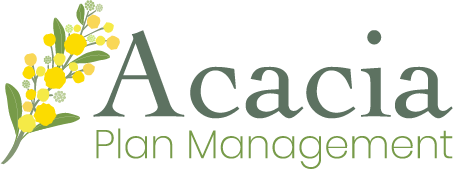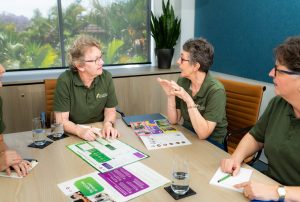The early childhood approach is the National Disability Insurance Scheme’s (NDIS) nationally consistent approach to working with children younger than seven years of age who have a developmental delay or disability – as well as their families.
Here’s what to do if you believe your child, or a child you care for, fits into either category.
What is the NDIS early childhood approach?
A child’s early years are very important for setting up how they will learn and develop in the future. The NDIS early childhood approach is about quick access to early intervention for your child. It ensures that children younger than 7 years who have developmental delay, developmental concerns or disability get quick access to support and services that promote their development, their (and their family’s) wellbeing and their participation in the community.
Children younger than six years with a developmental delay may be eligible for the NDIS under the early intervention requirements.
Children who do not fully meet the definition of developmental delay and have developmental concerns can also be supported through the early childhood approach. An early childhood partner or local area coordinator can help parents connect with other government and community supports.
What the NDIS early childhood approach aims to achieve
The early childhood approach puts a child’s parent or carer at the centre of supporting their child’s development, and aims to:
- provide timely support to ensure that children and families can access the supports they need
- provide information about best practice early childhood intervention supports and how a family can help their child
- increase a family’s confidence and capacity to manage and respond to their child’s support needs
- increase a child’s ability to do activities they need or want to do throughout their day
- increase a child’s inclusion and participation in mainstream and community settings like childcare or recreation
- provide information about, and referrals to, other support services if needed, like parent support groups
The early childhood approach is implemented by early childhood partners. These are local organisations that the National Disability Insurance Agency (NDIA) funds to deliver the early childhood approach.
How does the early childhood approach work?
The early childhood approach can start with you receiving information, connections to mainstream and community services, and support from allied health professionals. You can also get support and advice from the NDIS’ early childhood partners.
Under the NDIS early childhood approach, your child can get support without becoming an NDIS participant. This support might be early connections or early supports. Your child doesn’t need a diagnosis to get these supports, which the NDIS calls early connections. The NDIS’ early childhood partners will connect you to the services that best meet the needs of your child, which may include connection to early supports or help to apply to the NDIS.
Early connections
This program connects your child with support for their development. This support can include information about and contacts for mainstream supports like local community health services, playgroups or peer support groups.
Early supports
These are therapies and strategies that help your child develop skills to do everyday things like eating, dressing, going to the toilet and so on. Early supports also help you and your family learn how to develop your child’s skills at home and in other everyday environments.
The early childhood approach also includes community capacity building. This means the NDIS works with community and mainstream services, like childcare, to increase their awareness and ability to support children with delays in their development or with disability.
The NDIS early childhood approach can also involve your child becoming an NDIS participant. This happens when your child needs longer-term support, and you need to request NDIS access for your child. If your child meets the eligibility criteria and becomes an NDIS participant, the NDIS’ early childhood partners will help you and your child with your NDIS plan.
What if there are no early childhood partners in your area?
Early childhood partners are not located in remote and very remote areas. If you live in an area that doesn’t have an early childhood partner, and you have concerns about your child’s development or disability, you should start by speaking with your doctor, child health nurse, early childhood educator or other health professional.
What to do if you think your child may have a developmental delay or disability
If you have concerns about your child’s development, you can first speak to your doctor, child health nurse, or other health professional. They will help you work out what supports you and your child may need, and they may connect you with a NDIS early childhood partner.
You don’t need a referral or diagnosis from a medical professional to access support through the NDIS’ early childhood approach.
Click here to read more NDIS resources for families and carers.





